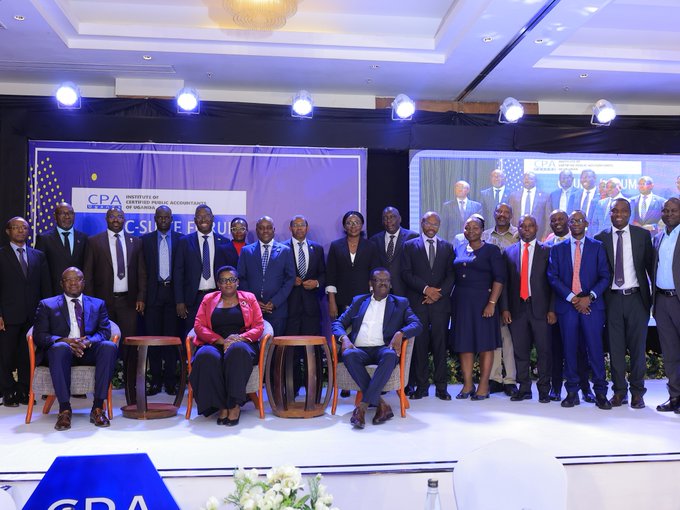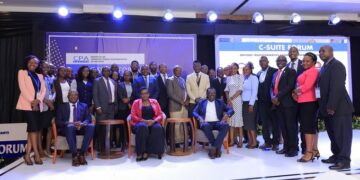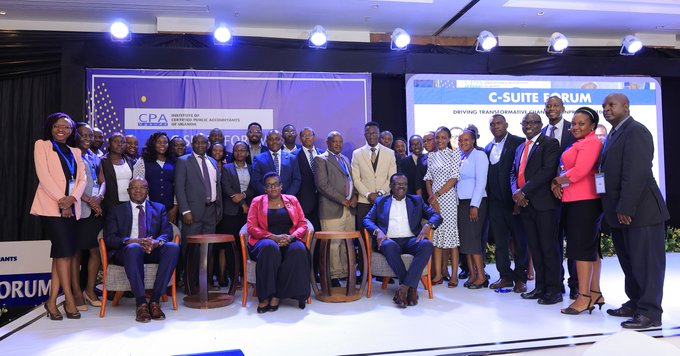The 3rd C-Suite Forum 2025, hosted by the Institute of Certified Public Accountants of Uganda (ICPAU), kicked off in high gear at the Sheraton Hotel, Kampala.
Under the theme of transformational leadership amid disruption, the forum brought together Uganda’s top CEOs, CFOs, COOs, and financial strategists to tackle the evolving role of finance in driving national development. Finance, speakers argued, must no longer be seen as a back-office function but as a strategic engine for innovation, agility, and resilience.
“Icons of Financial Leadership”
Opening the forum, ICPAU Vice President CPA Ronald Mutumba saluted veterans like Prof. Ssejjaaka as icons of national service and financial excellence. He urged finance leaders to embrace their expanding role as value creators, not just data custodians.

“Leadership today is about decisiveness in uncertainty,” Mutumba said. “From the classroom to the C-Suite, your journey is proof of what’s possible.”
Mutumba highlighted that strong financial reporting, risk management, and sustainability practices are vital to steering Uganda’s economy through global shocks and digital transformation. He closed with a challenge: “Let’s go back to our organisations and lead the change we talk about.”
“If There’s Chaos at the Top, Everything Stalls”
ICPAU CEO CPA Derick Nkajja emphasised the importance of alignment within executive leadership. “The health of an institution begins in the C-Suite. Quiet misalignments between CEOs, board members, and CFOs often stall progress,” he noted.
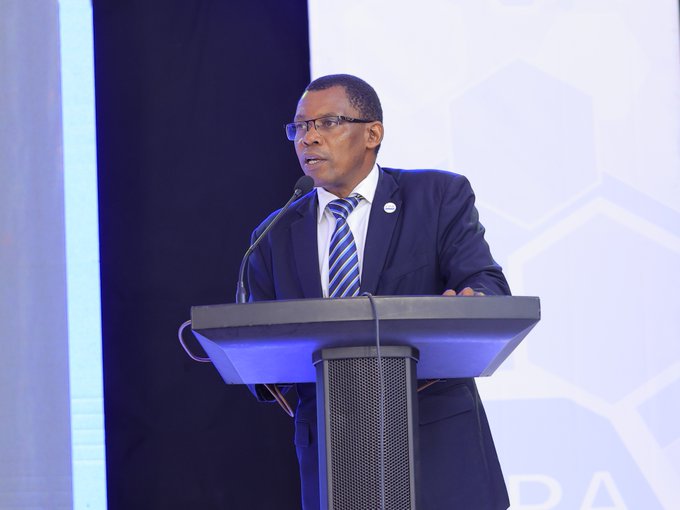
Nkajja positioned the forum as a platform to realign leadership and financial stewardship. “Every rising institution has a strong, aligned finance team at its core,” he said.
Don’t Lead with Yesterday’s Logic
Delivering the keynote, Prof. CPA Samuel Sejjaaka, Principal of MAT ABACUS Business School, offered a powerful Agile Leadership Framework for modern executives. He challenged leaders to shift from control to enablement, stressing that agility, listening, continuous learning, execution, and anticipation are now non-negotiable.
“Brands must pivot or perish,” Prof. Sejjaaka warned. “The modern customer is informed and impatient. Leadership that fails to adapt is doomed to irrelevance.”
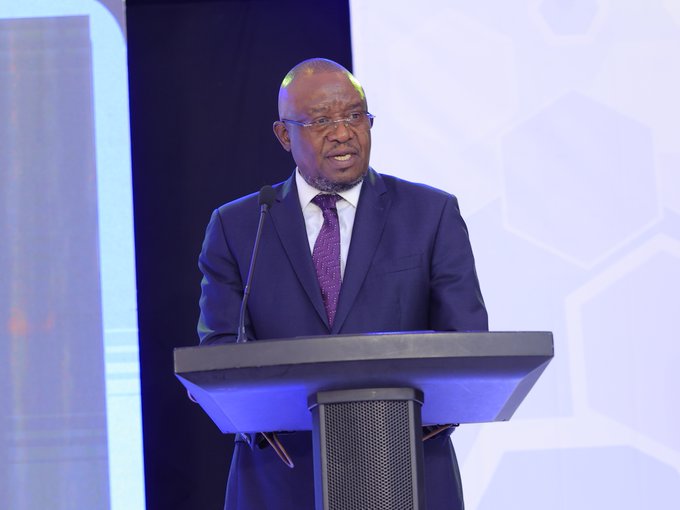
He also called for greater engagement with national development agendas, taxation policy, and ethical governance. “Executive decisions today must consider public sentiment, regulation, and responsibility. The world has changed, and so must your mindset,” he said.
Technology Must Serve Simplicity, Not Complexity
While digital transformation is essential, Prof. Sejjaaka cautioned leaders to deploy it purposefully. “Technology must help us simplify, not complicate. It should reduce risk, not replace humans.”
At MAT ABACUS, data is now central to how they track student success. Prof. Sejjaaka revealed that some of their most driven students are those with the least resources, proving that insight, not assumption, should drive decisions.
Prof. Sejjaaka raised alarms about internal data vulnerabilities, recounting how nearly half his staff clicked phishing links during simulations.
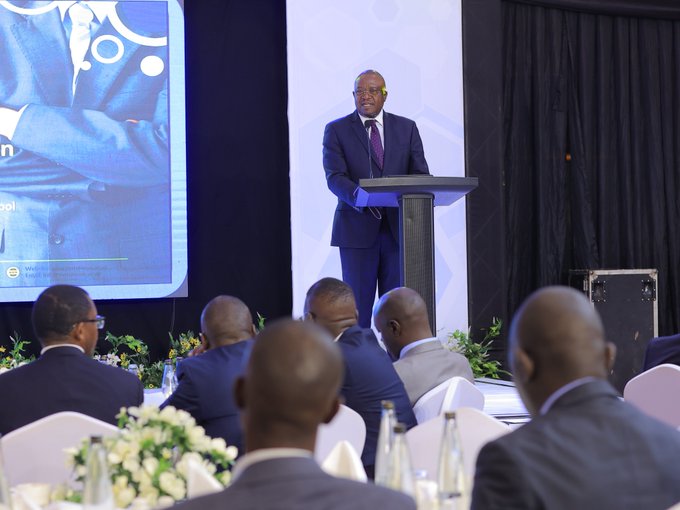
“The biggest threat to your data isn’t the hacker outside—it’s the unaware team member inside. Cybersecurity starts with culture.”
Transformation Is Not a Project
He urged leaders to stay humble – titles don’t build trust, presence does, empower frontliners – the best ideas rarely start in boardrooms and invest in people – the only transformation that lasts is one built through human capacity.
Prof. Sejjaaka left the room with a challenge: “Yes, these are turbulent times. But they’re also full of opportunity. If you stop learning, you stop leading. Stay evolving. Stay listening. Stay human.”
The 3rd C-Suite Forum 2025 ended with resounding calls for purpose-driven leadership, ethical governance, and the elevation of finance as a driver of Uganda’s development. As Prof. Sejjaaka and other thought leaders emphasised throughout the day, leadership in today’s Uganda must be bold, agile, and relentlessly future-focused.
